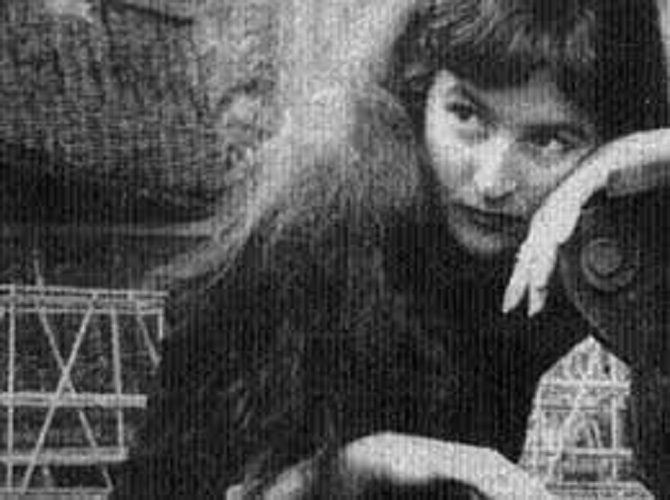In despairl would eat the earthTomorrowThe big black dogDarkens the lampGone is the dark violet with flattened cheekbonesGone is the idle star of the plains bloated with rainThe bee looks for the needle in the depths of my gazeNoonThe pupil of my eye bursts on the riverbankThe rainbow of orgasm is reflected on the ceilingUnder your tucked knees my eyeOssifies In your oblique sleepA tin greeneryCatches fireAnd it’s the entire orbitThat empties in my handWhy would I not take a comma for a heartThe street is noth1ng more than the masturbationOf women LA PISTE DU BROUI LLARDDe désespoirJe mangerai la terreDemainLe grand chien noirObscurcit la lampePartie la violette sombre aux pommettes spatuléesPartie l’etoile oisive des plaines gonflées de pluieL’abeille cherche l’épingle au tréfonds de mon regardMidiMa pupille éclate sur la bergeL’arc-en-ciel de l’orgasme se refléte au plafondSous tes genoux serrés mon oeilS’ossifieDans ton sommeil obliqueUne végétation d’etainPrend feuEt puis c’est toute l’orbiteQui se vide dans ma mainPourquoi ne prendrais-je pas une virgule pour un cœurLa rue n’est que masturbationDe femme
The Path of Fog
Feature Date
- November 23, 2023
Series
Selected By
Share This Poem
Print This Poem
Credit: “The Path of Fog,” from Emerald Wounds.
Translated from the French by Emilie Moorhouse.
Translation copyright © 2023 by Emilie Moorhouse.
Reprinted with the permission of City Lights Books.
All rights reserved.
Reproduced by Poetry Daily with permission.

Joyce Mansour, a Syrian Jewish exile from Egypt, was 25 years old when she published her first book in Paris in 1953. Her fierce, macabre, erotically charged works caught the eye of André Breton, who welcomed her into his Surrealist group and became her lifelong friend and ally. Despite her success in surrealist circles, her books received scant attention from the literary establishment, which is hardly surprising since Mansour’s favorite topics happened to be two of society’s greatest fears: death and unfettered female desire.
"Fierce, uncompromising, intelligent, weird, assertive, abject–Joyce Mansour's poems are a long cry of female rage and desire. The world is 'a shitting bird, ' the dead 'bloom like Parma hams, ' and the patriarchy subverted, mocked, & challenged at every turn, in personal relationships with men, in the fatuous advice of women's magazines. 'I do not know hell, ' Mansour writes, 'But my body has been burning ever since I was born.' These poems are the searing result of that life."–Kim Addonizio, author of Now We're Getting Somewhere
"This is a very welcome translation, one English readers can trust. Mansour should be far more read (in both French and English) than she is. Emilie Moorhouse has performed an invaluable service to her and to French literature in English."–Christopher Sawyer-Lauçanno, Cable Street
Poetry Daily Depends on You
With your support, we make reading the best contemporary poetry a treasured daily experience. Consider a contribution today.




